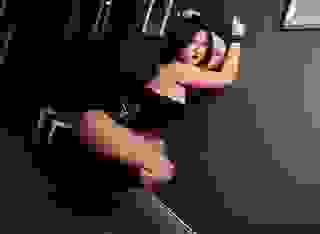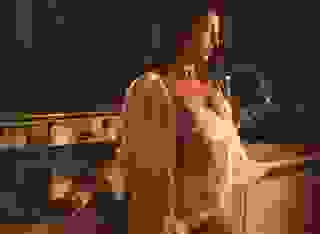- Romance
- The 1951 Dodge Business Coupe
Note: You can change font size, font face, and turn on dark mode by clicking the "A" icon tab in the Story Info Box.
You can temporarily switch back to a Classic Literotica® experience during our ongoing public Beta testing. Please consider leaving feedback on issues you experience or suggest improvements.
Click hereIt was the summer I was seventeen that I started looking for a car of my own. Mom and Dad just had one car so even though I had a driver's license, I was still riding my bike or walking everywhere I went. That pretty much choked off any chance of getting a date with a girl. All the girls in high school wanted to date a guy with a car, preferable a hot car like a Mustang or a GTO. A couple guys with parents who were pretty well off had cars like that. Most of the guys bought a used car and then fixed it up with some new paint and those loud mufflers they called "glasspacks".
Dad didn't have a problem with me buying a car as long as it didn't cost him anything. He said if I worked for a car I'd take care of it unlike Jeremy Green. Jeremy was a year older than me and his dad bought him a brand new red 1966 Chevelle Malibu that looked great and would make your head snap back if you stomped on the accelerator. Jeremy thought it was fun to go out on a county highway and drag race with other guys.
He won a lot, up until the day he missed the timing on a shift between second and third. He let out the clutch a little too soon and broke the third gear into three pieces trying to cram it into gear. He told me that according to the mechanic at the local Chevy dealer, when the gear broke, one of the pieces jammed between the main drive gear and the side of the transmission housing. That locked up the transmission, but since the engine was at wide open throttle, it smoked the clutch. Right after the clutch burned, the transmission housing broke and pieces of gears and most of the transmission fluid spilled out all over the road.
.
Jeremy's dad got his car fixed, but Jeremy didn't stop drag racing until he got drafted right after he graduated. He didn't start up again after he came back from Vietnam. With only one arm he couldn't steer and still work the shifter so he had to start driving a car with an automatic transmission.
Dad said Jeremy wouldn't have been so careless with his car if he'd had to pay for it and for the repairs. He said it would also mean more to me if I bought a car with money I'd worked for.
Well, the only jobs for a guy still in high school in my area were walking bean fields to weed them and baling hay. Those jobs paid at the rate of a buck and a half an hour, so even though I worked all summer, I couldn't afford much of a car. In fact, when I checked on the prices of used cars in decent shape, I couldn't afford any of them.
What I could afford was a 1951 Dodge business coupe I found in the newspaper classified ads. The owner, a man who had bought the car new and had driven it for over a hundred thousand miles was selling it for seventy-five dollars. That was too good to be true so I rode my bike ten miles to look at it.
Well, when I got there, it was easy to see why he wasn't asking for more. His daughter had driven it into a road ditch and rolled the car over at least once. The car was built like a tank so his daughter didn't get more than some bruises, but both front fenders were rubbing against the tires and the rear fenders weren't much better. He started the engine for me and it seemed to run all right, and he said the transmission was in good shape.
Well, when you're seventeen and think you need wheels, you do some stupid things. I figured I could pull the front fenders out enough to get the car home, and since the engine sounded pretty smooth, the fenders were all I'd have to fix. I paid the man seventy five bucks and then rode my bike home to see if Dad would help me get my car home so I could fix it.
I could tell Dad was a little skeptical, but he didn't say much. He drove us to the man's house and we used the bumper jack to pry the fenders away from the tires enough they'd still clear when I turned. Once that was done and Dad left, I got in, started the Dodge and started driving back home.
Well, I tried to drive home, but when I pushed in the clutch, shifted the car into first gear and then let out the clutch, nothing happened. When I looked down at the pedal, it was easy to see why. The clutch pedal was still down on the floor.
I tried easing it back up by hooking my toe under the pedal. The pedal didn't move much at first, but then it snapped back up, the car lurched, and the engine died. I pushed the clutch down again and started the engine, and this time I eased the clutch pedal back up with my toe while giving the engine some gas.
It actually worked, but I spun the tires so I didn't want to risk trying it again. I drove home in first gear and only had to stop and get going again one more time.
That's when I started learning about cars and how they worked. The school library subscribed to three different car magazines and like all teen-age boys, I read every one of those magazines. Like all teen-age boys, we all knew everything about cars including all the right words like compression ratio, torque, horsepower, rear-end ratio, hemi-head, and the like.
From a practical point I knew you pulled out the choke if the engine was cold, turned the key, pushed the starter button and the engine started. Then you pushed the choke back in and if it was an automatic, you just put it in gear and gave it some gas. If it had a straight stick, you had to push in the clutch, put it in gear, and then let the clutch out while you gave it some gas. I knew everything I needed to know to drive my car.
It was the thing with the clutch that taught me I didn't know as much as I thought. It seems really stupid now, but the way I first fixed that was to tie a cord around the clutch pedal and then tie the other end to the steering column. I'd put my foot on the clutch pedal and by pushing down with my foot and pulling on the cord, I could get the clutch to engage smooth enough I didn't stall out the engine or bark my tires getting started.
The first thing I had to actually fix was the fenders. Dad had jacked them out so they didn't hit the tires, but they were still bent and dented. I wanted the smooth contours the factory made on those fenders.
I checked a book on bodywork out of the library so I could learn how. What I learned is that to beat my fenders back into shape I needed about a hundred dollars worth of body hammers and anvils. After giving the job some careful thought, I decided dad's big ball pein hammer would work if I had something to hammer against. The only thing I had was the back yard, but I reasoned the dirt would give enough to let me reshape the fenders if I hammered a little and then checked to see how I was doing. I spent a whole Saturday taking off the left front fender. It took all day because most of the bolts were rusted pretty bad.
On Sunday afternoon, I laid the fender out on the ground and started beating out the dents. It took almost two hours, but when I turned the fender back over, it was pretty smooth. When I put it back on, it still had some small dents, but my library book said some body filler would fix that.
The other three fenders went faster, and a week and a half later, my Dodge was almost ready for a paint job. After another week of putting on body filler and then filing and sanding it back down, I was pretty happy with how things had turned out. When my buddies asked me why my car had gray splotches all over it, I'd just shrug and nonchalantly say I'd just done a body job and hadn't gotten around to painting it yet.
Dad had been watching me and said he thought his air compressor and paint gun might do a good enough job. That Saturday, I bought a gallon of light blue paint.
It took some more sanding to, as my book said, "feather out" the original paint, but by the next Saturday, my Dodge had changed from a crumpled black to a shining, if somewhat textured light blue. Now, it was time to do some serious work on that clutch.
I had one of my buddies push the clutch pedal down while I was under the car with a flashlight. It took a while to figure out what was going on, and when I did, I figured it was going to be expensive. The clutch pedal had a pivot under the floorboards and was connected to a piece that rotated when you pushed in the clutch pedal. That piece had a socket for the ball on the end of the rod that pushed on a lever that came out of the bellhousing between the engine and the transmission. I knew that lever worked the throwout bearing and disengaged the clutch. When my buddy pushed in the pedal, that rotated the piece that pushed the rod forward and pushed the lever that came out of the bell housing.
When I told him to let out the clutch, nothing happened. Then, I told him to pull on the cord. As soon as he did, the lever snapped back hard to where it was to begin with.
It took about half an hour of him doing that before I figured out the problem. What it was, was that the socket part of the piece where the ball fit was worn so much everything sort of got bound up together once the clutch pedal was pushed down and the clutch would stay disengaged. I needed a piece with a good ball socket and the other piece with the ball on the end because it looked pretty worn too.
Everybody knew the place to go for really good but cheap car parts was J.C.Whitney, and the library had a J.C.Whitney catalogue. It took a lot of looking through fender skirts and little boxes they called air conditioners that you filled up with water and then hung from a partly open window before I found the parts I needed. When I did, I just closed up the catalogue and put it back on the shelf. The parts called a clutch linkage bellcrank and the clutch actuating rod cost way more than I could afford if I was going to have any money to buy gas sometime during the next year.
That night, my dad asked how I was doing with the clutch and I said not very good. I knew what parts I needed but I couldn't afford them. He said I should go talk to Amos Meadows and see if he might have them.
I'd heard of Amos Meadows, but I'd never had a reason to go out to his place, and I wasn't sure I wanted to. Amos was what they called back then a "junk man". He had about fifty acres out in the country that was too hilly to farm so Amos didn't try. Instead, he filled up about a third of that fifty acres with cars and trucks that couldn't be economically repaired. He had a big truck with a flat bed that hinged and slid back and had a winch. He'd just back up to the car, let the bed down and hook the big hook on the winch to something on the car or truck that wouldn't give, and pull the car or truck up on the bed.
After chaining it down so it wouldn't fall off, he'd take it out to his farm and unload it next to all the cars he already had. He also bought broken down farm machinery from farm equipment dealers and at farm sales, and he had an assortment of old tractors, combines, and other farm equipment in another field across the road from the cars.
Amos wasn't well thought of in the area because people thought he was lazy. The only job he had was buying and selling junk. He'd haul off your junk car or truck for free and then sell the parts off it for a price that depended upon what the part was. You could buy a whole transmission for ten dollars and a whole engine for twenty. Small parts were a buck or two. Any part he sold was guaranteed until it left his junkyard. He didn't even mow the fields to keep the grass down. Instead, he ran enough cattle in the fields to keep the grass down.
The next Saturday, I borrowed Dad's car and drove out to Amos' house. Dad said to take Fisher's road out to Conner Lane and Amos' drive was the gravel drive just across from a little house that used to be a tenant house. When I saw the little house, there was a nice gravel drive that went back to a farmhouse and a barn. On both sides of that drive and in rows going back on each side were old cars and trucks with a few cows grazing on the grass.
When I knocked on the door, a young girl answered. I'd seen her at school but never paid much attention because I was a junior and she was in the seventh grade. I had no idea she was Amos' daughter until I asked her if Mr. Meadows was home. She turned around and hollered, "Daddy, this man wants to talk to you."
I'd never seen Amos because he didn't come to town very often, and when he did I was either in school or working on a farm somewhere. I'd heard he was pretty rough looking and probably not very smart. I was surprised when he walked up to the front door.
Amos was wearing a gray work shirt and bib overalls and heavy work boots, but the shirt and overalls weren't dirty or worn. They looked like they'd been washed right before he put them on. He'd apparently shaved that morning, something Dad didn't do on Saturday morning, and the hand he extended was clean. He smiled and said, "What can I do for you, young man?"
I said I needed some parts that worked the clutch on a 1951 Dodge Business Coupe. He thought for a few seconds and then smiled.
"I don't have one of those, but I have a 1950 Plymouth. They don't change those types of parts except for about every ten years, so they'll fit. I turned it over on its top last week so a man could get to the back axle. I'll have Judy here show you where it is."
He turned to the girl then.
"Judy, Honey, remember that blue Plymouth down by the International pickup with the engine gone? Go show this young man where it is. When he gets his parts, you bring him back to the house so he can pay me."
Well, that's when I learned another thing about how Amos Meadows ran his business. Amos didn't do anything except bring in the cars and collect the money. It was strictly a "you take it off yourself" operation. I hadn't brought any tools with me, but when I told Amos that, he just smiled.
"No need to hurry. That Plymouth isn't going anywhere. You go get your tools and come back and get Judy so she can show you where it is."
An hour later, I knocked on Amos' door and Judy answered it.
"You all ready? You can drive right up beside the Plymouth so you won't have to carry anything very far. Let me get my oil can and we'll get going."
She didn't say anything while I drove between the rows of junk cars. She just sat on the passenger side and held a small pump oil can. I had no idea what she was going to do with that oil can.
I was amazed at just how many cars Amos had. Some were newer models and obviously had been in car wrecks, but I saw more than a few Model T and Model A Fords that had been partially stripped. There were trucks from old pickups that were mostly rusted out to farm trucks missing the beds and even three semi's.
I'd been driving for a couple of minutes when Judy pointed and said "over there, by that green truck".
It was a lot easier to see all the parts since the Plymouth was laying on its top, and they looked just like the parts on my Dodge except they looked almost new. I also saw a spring I didn't have on my Dodge.
I was getting ready to take off the parts I needed when Judy said, "Just a minute. I see a bumblebee."
She pointed her oil can at an opening in the frame and squirted it twice. She was right about the bumblebee but wrong about how many. At the first squirt, bumblebees started coming out of a hole in the frame of the Plymouth. I smelled gasoline as Judy kept pumping her oil can. As soon as a bumblebee came out of the hole, Judy would give it a squirt and it would fall down on the ground.
When no more came out after about a minute, Judy looked up at me and smiled.
"OK, you won't get stung now. I got 'em all I think. Gas gets them every time. If any come back, I'll give them a squirt from my oil can and that'll knock 'em down."
It took half an hour for me to get the parts I needed including the spring. I put them in the trunk and then drove Judy back to the house. She went in while I waited, then came back out.
"Daddy says five dollars for the two parts and a quarter for the spring."
By five that night, I had the old parts laying beside my Dodge and the new parts put in. When I got inside and pushed down the clutch pedal it didn't feel as tight as before, and when I lifted my foot, the pedal came back up all by itself. Now, I could drive anywhere without the cord on my clutch pedal, well, almost.
I pushed in the clutch pedal and started the engine to go try it out. When I did that, the engine started to crank, but the car started to move too so I shut off the engine. That's when I understood why the ball end of the rod was screwed onto the rod. That was an adjustment so the clutch would disengage all the way.
It took a few tries, but eventually I got everything adjusted. When I pushed the clutch pedal in and started the engine, nothing moved. When I lifted my left foot a little, I felt the clutch start to grab. After making sure everything was tight, I took a drive around town just to make sure. It felt great to finally have my own wheels. I could go anywhere I wanted, any time I wanted, well, as long as I told Mom or Dad where I was going and what time I'd be back.
That trip wasn't the last trip I made to Amos' junkyard and that old Plymouth. Over the course of my senior year in high school, I kept finding things on my Dodge that didn't work right. It was right before Halloween I noticed I couldn't stop as fast as before. Dad said I probably needed to take my Dodge down to the filling station and have them do a brake job.
I did drive down and ask how much it could cost. Ted Johnson scratched his head.
"Well, the shoes won't be bad, maybe ten dollars, but I'll have to turn them drums and most this old are too thin to turn. I'll have to get new drums and they're about ten each. With labor, you're looking at maybe sixty to seventy dollars."
I didn't have even fifty dollars left from my summer earnings, so I drove out to Amos' place again. Like before, Judy went with me to take off the parts. She took her oil can this time too, but evidently the bumblebees had decided the Plymouth frame wasn't a very good place to live.
All I was going to take was the drums, but once I got the drums off, the shoes looked new so I took them too. When I drove us back to the house, Judy went inside and came back a couple minutes later.
"Daddy says he'll take ten dollars for everything and you might as well go back and get all the springs and other stuff. He said they'll just get lost if you don't take them."
A day later, I had good brakes, even better than before and it had only cost me ten dollars.
It seemed like I drove out to Amos' place about once a month. First, I broke a window winder, then it was a door handle. In January, it was a headlight mount that disintegrated when I tried to replace the headlight. In February it was the other headlight mount. Judy went with me every time even though a few times it was cold and there was snow on the ground.
My parts problems let up after February, so I didn't go out to Amos' place, but I still saw Judy in school. She didn't have any friends, I suppose because of what Amos did for a living, but she always waved at me if we saw each other between classes. I waved back, but didn't think much about it. She was thirteen and still a kid and I was almost eighteen and an adult.
In March of that year, an Army Recruiter had come to the school and talked to the senior class. He said it was almost a sure thing every boy in the class would be drafted sometime during the summer, and what that meant was the Army would choose where we went and what we did. He said a better way would be to enlist for four years and be able to pick what we wanted to be instead of being drafted and having the Army decide.
He also said we could postpone being drafted if we went to college, but that just meant we'd have to spend two years in the Army when we graduated instead of doing what we went to school to do. If we enlisted, the GI Bill would pay for college after we got out.








